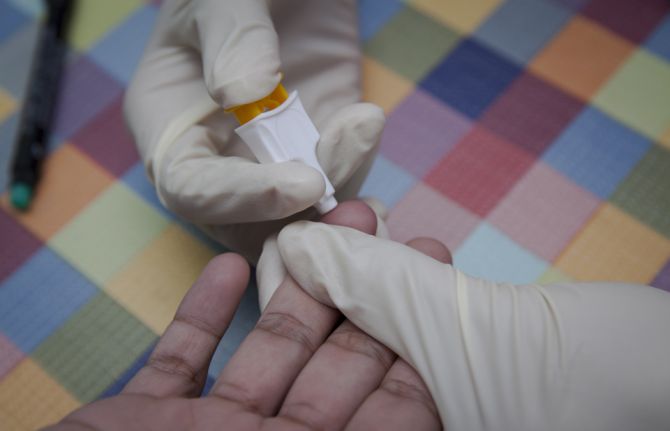

Feature Story
Decentralization of HIV testing services to increase access for people who inject drugs in Viet Nam
12 October 2016
12 October 2016 12 October 2016In Viet Nam, the Authority for HIV/AIDS Control and the Ministry of Health piloted outreach HIV testing services to increase uptake among people who inject drugs and their partners. Bi-monthly HIV testing was offered in villages where there were large communities of people who inject drugs.
The outreach team included two health service staff, one village health worker and one peer educator. People who inject drugs and their partners were invited to a convenient location and offered HIV counselling and rapid HIV tests. Reactive test results were sent for confirmatory testing and clients with a confirmed diagnosis of HIV were counselled and linked to clinics for treatment and care.
From September 2014 to January 2015, 8.9% of people tested were newly diagnosed with HIV—approximately four times higher than the percentage observed at district primary health-care facilities. The results of this pilot programme suggest that the provision of community-based HIV testing services is a feasible and efficient method of increasing knowledge of HIV status among people who inject drugs and their partners, as well as other key populations. Peer educators and village health workers were instrumental in reaching the target population. This model will inform the development of national guidelines on community-based HIV testing. Source: http://who.int/hiv/pub/guidelines/hiv-testing-services/en/.
To find out more about harm reduction, please go to the World Health Organization harm reduction page at http://who.int/hiv/topics/idu/en/ .
Resources
Consolidated guidelines on HIV testing services
Do no harm - Health, human rights and people who use drugs
Consolidated guidelines on HIV prevention, diagnosis, treatment and care for key populations
Guidance on prevention of viral hepatitis B and C among people who inject drugs
Harm Reduction International “Global State of Harm Reduction”



